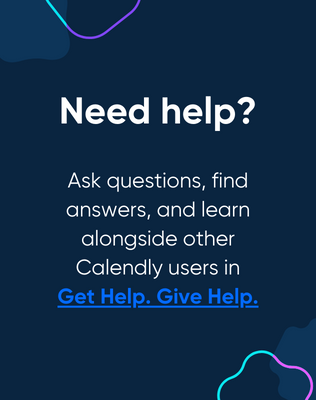Integrating Calendly with Salesforce can offer several benefits, streamlining your scheduling and customer relationship management processes. Here are some key advantages:
Automated Record Management:
Calendly integration automates the creation and updating of Salesforce records as meetings are scheduled, ensuring accurate and up-to-date information without manual input.
Why is this helpful?
Imagine you're a sales representative who spends a significant amount of time scheduling meetings with potential clients. With the Calendly and Salesforce integration, this process can be streamlined and automated, saving you valuable time and ensuring that your Salesforce records are always up-to-date.
Here's how it works:
- Scheduling a Meeting: You share your Calendly link with potential clients, allowing them to view your availability and schedule a meeting at a convenient time.
- Automated Record Creation: When a meeting is scheduled through Calendly, the integration automatically creates a new record in Salesforce. This record includes details such as the client's name, contact information, and the scheduled meeting time.
- Updating Records: If there are any changes to the meeting, such as rescheduling or cancellation, Calendly automatically updates the corresponding record in Salesforce. This ensures that your Salesforce records are always accurate and reflect the latest information.
- Efficient Follow-up: After the meeting, you can easily refer to the Salesforce record to review the discussion and follow up with the client. This streamlined process helps you stay organized and ensures that no leads fall through the cracks.
By integrating Calendly with Salesforce for automated record management, you can eliminate manual data entry, reduce errors, and focus on building strong relationships with your clients.
Centralized Data in Salesforce:
Centralized data means that important Calendly-related information, such as scheduling details and routing form responses, is stored in a unified repository within Salesforce. This consolidation reduces the need to navigate through multiple systems to find crucial details.
Why is this helpful?
Imagine you're a sales manager at a software company, and your team uses Calendly to schedule meetings with potential clients. Your team also uses Salesforce to store data on potential clients and accounts. With the Calendly and Salesforce integration, all meeting scheduling details are automatically synced to Salesforce, creating a centralized repository of data.
Personalized Communications:
Calendly profile and managed event links are associated with the correct Salesforce user, enabling the use of personalized communications in automations and email templates.
Why is this helpful?
Imagine you work for a sales company that uses Salesforce to send out email campaigns to clients. You can customize the email templates in Salesforce and use Calendly event links to have users directed to the booking page!
Dynamic Link Sharing:
Efficient Communication: With mapped Calendly links, you can dynamically share the right person's Calendly link in automations and email templates, enhancing communication efficiency.
Why is this helpful?
Imagine you work for another sales company that uses Salesforce to send out emails directly from the record page. With the integration, you can dynamically reference your own scheduling link or that of another team member right from within Salesforce.
Customizable Salesforce Object Integration:
The integration is customizable to work with various Salesforce objects. While it defaults to leads and events, it can be tailored to your specific needs, providing flexibility in managing different types of data.
Why is this helpful?
Perhaps you work for a company that doesn’t use Leads - only Contacts. Maybe you also use Cases instead of Events. You can customize our package to fit your needs.
Enhanced Planning:
Users can conveniently view upcoming Calendly events directly from their Salesforce record's open activities, facilitating better planning and preparation.
Why is this helpful?
Imagine you're a sales manager overseeing a team of sales representatives. You use Calendly and Salesforce to enhance the planning of team meetings and ensure that everyone is aligned and prepared.
Comprehensive Event Tracking:
Individual invitees' canceled and rescheduled meetings are tracked, offering a comprehensive view of engagement history and allowing for proactive follow-up or adjustments.
Why is this helpful?
Imagine you're a customer success manager responsible for maintaining strong relationships with clients. You use Calendly and Salesforce to track individual client interactions and proactively follow up on canceled or rescheduled meetings.
Calendly-Sourced Activity Reporting:
Generate reports on activities sourced by Calendly, providing valuable insights into the impact of scheduled meetings on your business processes and sales pipeline.
Why is this helpful?
Imagine you're a sales manager looking to analyze the impact of scheduled meetings sourced by Calendly on your business processes and sales pipeline. By integrating Calendly with Salesforce, you can generate reports that provide valuable insights into the effectiveness of your meeting strategies.
Keep in mind that the specific benefits can vary based on your organization's unique requirements and how the integration is configured. Always refer to the latest documentation for both Calendly and Salesforce to ensure you are utilizing all available features and optimizations.
In summary, Calendly's Salesforce integration streamlines data flow and communication, automates record management, and provides valuable insights through comprehensive reporting. This results in increased efficiency, personalized communication, and a more informed and responsive approach to customer engagement.

